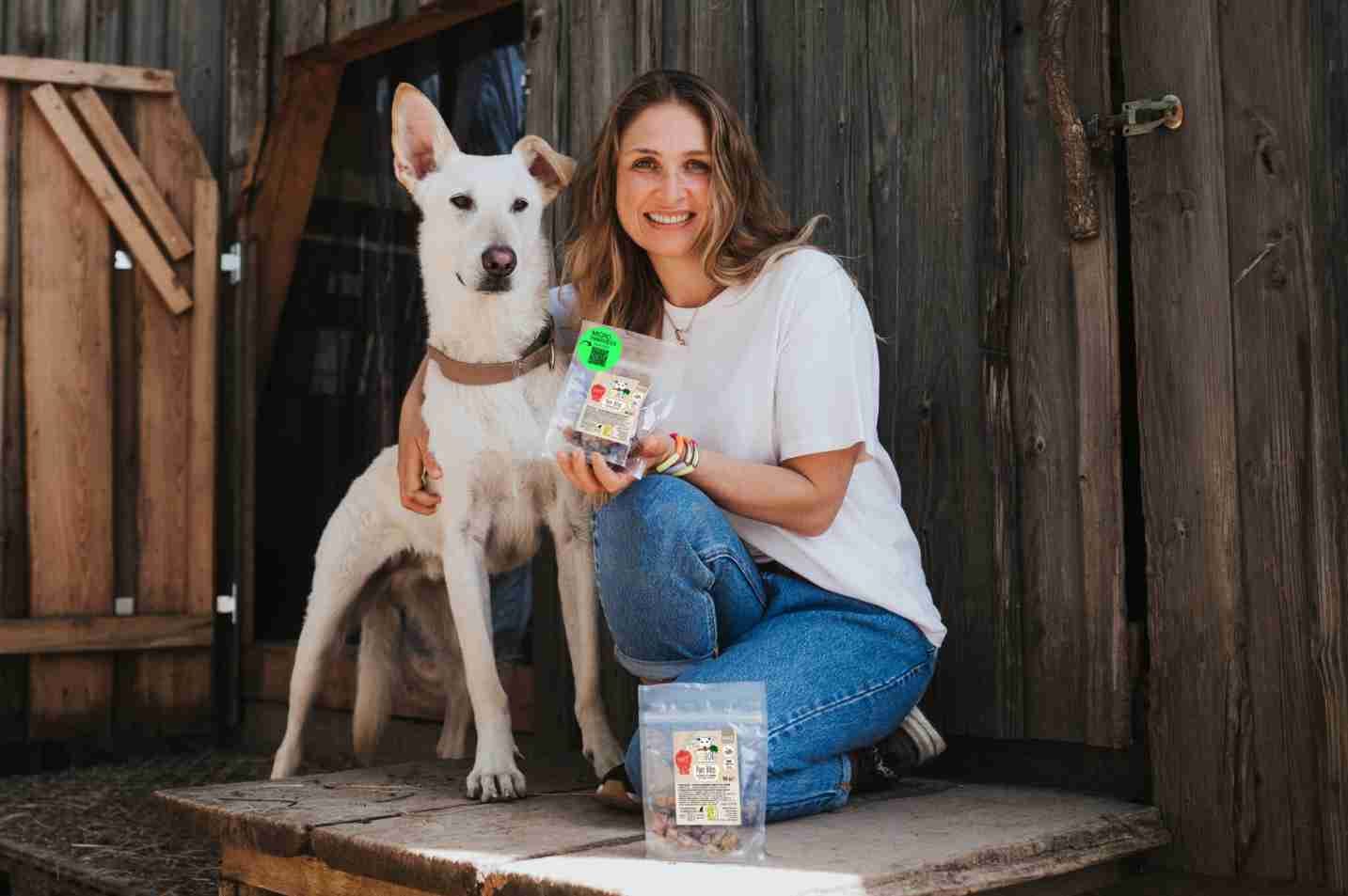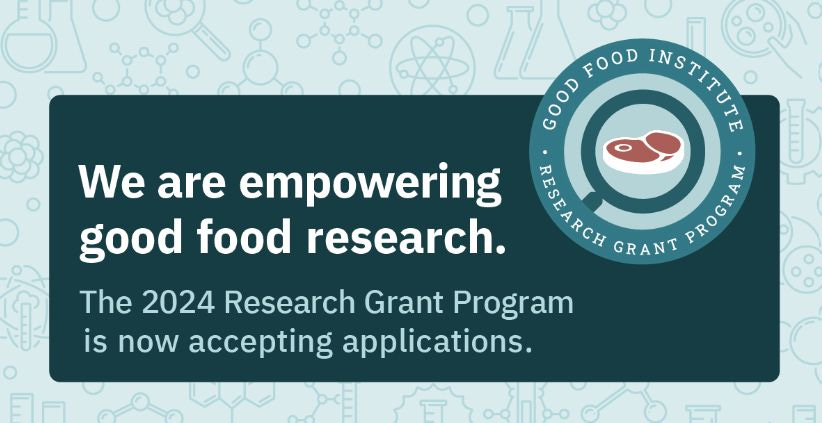$100M Bezos-Backed Fund, Pork Protein in Soybeans, and Chicken From a Feather
Also: Tips for managing CAPEX without breaking the bank
Hi, welcome to issue #62 of the weekly newsletter. Thanks for being here!
Here’s my favourite quote that I came across this week:
“Alternative proteins are an imperative if we are to stay within planetary boundaries, if we are to feed 10 billion people within those boundaries […] We’re investing in alternative proteins because they need to be successful.”
- Andy Jarvis, director of future food at the Bezos Earth Fund
Let’s dig into the latest developments in biotech, shaping the future of food! 🍽
BIO BUZZ
🐶 VEGDOG and MicroHarvest partnered to launch a microbial protein-based treat for dogs
The new Pure Bites dog treats are designed to be hypoallergenic and highly digestible, catering especially to the 1-8% of dogs that suffer from food allergies. These treats combine microbial protein with potatoes and apple pomace.
In a study conducted by MicroHarvest in partnership with Wageningen University involving 1,162 UK and German dog owners, 77% expressed a willingness to buy dog treats made with microbial protein. Additionally, 78% supported using this protein in complete dog food.
MicroHarvest's microbial protein emits only 1.4 kg of CO2e per kg produced, compared to up to 99 kg for traditional beef production. The production method is based on bacteria used in foods like kimchi, and it can produce high-protein content (60% raw protein) within 24 hours using biomass fermentation.
Source: Green Queen
🍄 MycoTechnology scaled the production of its precision-fermented honey truffle-derived sweet protein from lab to 3,000-litre scale
MycoTechnology isolated the protein that gives honey truffles their sweet taste. It used precision fermentation to produce a sweetener 1,000-2,500x sweeter than sucrose, featuring a clean taste profile.
Safety evaluations confirm that sweet protein is not allergenic or toxic. The human digestive system can fully digest it, breaking it down into amino acids similar to those of meat, fish, or eggs.
MycoTechnology is preparing for regulatory submissions and collaborating with industry partners to introduce the sweetener. The product aims to offer a clean-label, non-nutritive alternative to sugar and artificial sweeteners for F&B manufacturers.
Source: Food Ingredients First
🇱🇺 Moolec Science received clearance from the USDA for its genetically engineered soybeans that produce pork proteins
The USDA's Animal and Plant Health Inspection Service (APHIS) has determined these soybeans are unlikely to pose any increased risk of pests compared to traditional soybeans.
The Luxembourg-based molecular farming company's Piggy Sooy soybeans have shown a high expression of porcine proteins, achieving 26.6% of the total soluble proteins in the seeds.
Moolec plans to partner with ingredient processors and has an industrial facility in Argentina that can process 10,000 tonnes of soybeans annually. This approval will accelerate its go-to-market strategy for bioengineered proteins, which will be sold to food manufacturers.
Source: Green Queen
🐷 Magic Valley introduced cultivated pork bao buns at a recent tasting, receiving positive responses
The Australian cultivated meat company uses induced pluripotent stem cell (iPSC) technology to grow beef, lamb, and pork without fetal bovine serum.
Wendy Chua, the Senior Research Assistant at Magic Valley, crafted the recipe for the pork bao buns, focusing on enhancing their rich, umami flavour to demonstrate the potential of Magic Valley’s technology.
Notable feedback came from Jessica Freitag of Cellular Agriculture Australia, who appreciated the meat's “indistinguishable” taste from traditional products after not having eaten meat for 5 years.
Source: vegconomist
🛠 Nurasa inaugurated its Food Tech Innovation Centre (FTIC) to support innovation and commercialisation for sustainable foods
Located in Singapore, FTIC is a 3,840 m2 food-grade facility with high-tech laboratories, advanced precision fermentation and food processing capabilities. The precision fermentation lab includes bioreactors that have production capacities of up to 100 litres.
The FTIC houses the NuFood Concept Studio, an open innovation platform that develops and commercialises sustainable foods. This includes producing low-sugar, cholesterol-free, and gut-friendly foods with exceptional flavours.
The robust ecosystem at FTIC involves partners like A*STAR, ScaleUp Bio and Cremer. Cremer Sustainable Foods operates a 1,000 m2 facility for alternative proteins with a capacity of 1,300 tonnes per year.
Source: Nurasa
🪶 “Feather to Meat” project expands to larger-scale cultivated chicken trials
The project at Italy’s University of Trento was launched last year to cultivate chickens using cells from feathers. It has now completed its initial phase, developing the “first batch of cellular material ready to be used for reproduction” in bioreactors.
Researchers are transitioning to larger-scale production tests aimed at real market applications and preparing to establish cell lines suitable for licensing in food production.
This project, supported by the Save the Chickens Foundation, promotes technological innovation. It aims to greatly reduce environmental impacts and improve animal welfare by replacing traditional meat production methods.
Source: vegconomist
⚡️ More buzzes
🇰🇷 South Korean scientists have published a breakthrough using edible brown algae, Undaria pinnatifida, to create a scaffold for steak-like cultivated meat. The study’s ACe-gel scaffold was superior to a commercial alginate scaffold in promoting cell attachment and proliferation. (Science Direct)
🛠 The Cultivated B signed an MOU with The Novo Nordisk Foundation Center for Biosustainability (DTU Biosustain) to improve bioreactor design. The partnership focuses on improving bioproduction processes' scalability, efficiency, and environmental sustainability. (Cell Base)
🇦🇺 Nourish Ingredients introduced animal-free speciality fat made using precision fermentation to mimic the properties of dairy fat. The Australian company’s products are low-inclusion lipids that enhance flavour and texture without requiring high usage rates. (FoodNavigator)
$3.4M R&D GRANTS
💰 Are you working in R&D focused on alt proteins? Apply for GFI’s 2024 research grant
Proposals should target one of our three priority topic areas:
🌱 Upcycled plant proteins
🦠 Next-gen fermentation downstream processing
🧪 Optimisation of hydrolysate production to enable lower-cost media
Deadline: May 23, 2024
MACRO STUFF
💬 Alt protein startups are experiencing fundraising difficulties. Here are industry experts' advice for startups.
Strategies for investor engagement: Tailor investor materials to show a clear revenue-generating strategy within 12 months. Provide concrete proof of business viability, such as customer engagement, revenue generation, or market-tested products.
Relationship building: Continuously build relationships with potential investors, not just during fundraising periods. Use warm introductions and network through industry connections for better access to investors.
Pitch preparation: Prepare thoroughly for investor meetings with a well-designed pitch deck. Understand potential investors’ backgrounds and investment focus to tailor pitches effectively.
Improve operational efficiency: Evaluate hiring needs carefully to control costs. Consider outsourcing certain roles initially. Avoid overspending on marketing and equipment before achieving product-market fit.
Pricing: Price products based on what consumers are willing to pay. Start with a consumer-friendly price point and work backwards to adjust costs and margins. Negotiate with suppliers to manage costs effectively and maintain healthy margins.
Source: GFI APAC
BIO BUCKS
💰 The Bezos Earth Fund is dedicating $100M through the AI for Climate and Nature Grand Challenge, with alt proteins as a focal area
This 3-year challenge will initially focus on sustainable proteins, biodiversity conservation, and power grid optimization, with further rounds expanding to other climate-related categories.
The fund has recently committed $60M to create Centers for Sustainable Protein to tackle cost, flavour, and health improvements in alt proteins.
The challenge features two funding phases: up to 30 seed grants will be awarded during Climate Week NYC (Sept 22-29), followed by additional grants of up to $2M to develop selected projects further.
Source: Green Queen
🪐 Mycorena secured funding from the European Space Agency to develop food for long-distance space missions
Mycoprotein is a sustainable and nutrient-rich food source that supports muscle health and overall well-being. Mycorena’s tech can efficiently produce mycoprotein in space in a closed-circuit system using byproducts and sidestreams from missions.
The system is designed to offer psychological benefits by providing astronauts with a familiar, meat-like texture instead of the typical “tasteless paste” found in space food.
Mycorena's prototype won NASA's 2023 Deep Space Food Challenge. The team will develop it further by partnering with AlgoSolis, a French microalgae company, to improve fungi growth on microalgae substrates and create 3D-printed food.
Source: vegconomist
🦠 Edonia raised €2M in a pre-seed round to expand the team and scale up production of its microalgae protein ingredients
The French startup is set to launch a texturized plant-based meat ingredient that mimics the texture and flavour of meat. The product contains 30% protein and is free from additives.
Edonia has developed a proprietary process called "Edonisation," transforming microalgae biomass into a brown, umami-flavoured ingredient. This process addresses the typical "algal" taste issue and offers a clean-label, nutrient-dense product.
Edonia aims first to enter the European market and expand globally through strategic partnerships. Since its main ingredients, spirulina and chlorella, are not classified as novel foods in Europe, the startup can bring its products to market faster.
Source: vegconomist
🍔 Cultimate Foods raised €2.3M in seed funding to scale the production of alternative fat ingredient
CultiFat, made from beef and pork fat cells, is a cultivated premium fat ingredient that contains essential fatty acids that enhance the flavour and aroma of plant-based meat products.
The German B2B cultivated fat supplier has created two hybrid prototypes (burgers and sausages) with a mix of plant-based and cultivated fat. Since tastings in Europe require authorization, these prototypes demonstrate CultiFat's potential in terms of aroma.
Additionally, Cultimate has already conducted several trial runs with major food industry players.
Source: vegconomist
SOCIAL FEAST
🧠 Tips for managing CAPEX without breaking the bank
Consider collaborating with suppliers that offer free demo placements of critical equipment to help reach technological or funding milestones before committing to a purchase.
If a supplier sees potential for future sales, they may be more willing to extend demo placements, sometimes up to 7 months. This creates a mutually beneficial situation for both parties.
Leasing or financing can be a viable way to manage CAPEX by spreading costs over time. However, it's important to understand the terms thoroughly, especially for pre-revenue startups.
Source: Andrew Gray
🇩🇪 Takeaways from the German Fermentation Summit
It's emphasized that new business models involving partnerships between startups, corporates, equipment suppliers, and government support are necessary to bridge CAPEX gaps for short-term profitability.
There's a recognition that side streams aren't enough to sustain large-scale fermentation. Alternative sugar sources and CO2 are suggested as more abundant feedstocks to meet the demands of these facilities.
AI is highlighted as key for speeding up optimization tasks in bioprocessing, such as feedstock optimization and product formulation, to improve efficiency and reduce costs.
Source: Gerrit Feuerriegel
😂 4 the lolz
MORE ON BETTER BIOECONOMY
💬 Bio Talks: Conversations with bioeconomy innovators
Synonym's co-founder, Joshua Lachter: Financing and Developing Infrastructure for the Bioeconomy
Bioshyft's founder, Gerrit Feuerriegel: Connecting Innovators, Investors, and Incumbents to Drive the Bioeconomy
Terra Bioindustries’s CMO, Rebecca Palmer: Turning Agrifood Byproducts Into Nutrient-Rich B2B Ingredients
🌏 APAC's March 2024: 10 noteworthy food biotech advancements
Singapore’s Umami Bioworks and Shiok Meats announced a merger to become a global leader in cultivated seafood.
India is progressing in establishing a regulatory framework for cultivated meat and seafood, with FSSAI formulating safety regulations.
Australia's Cauldron raised AUD 9.5M in Series A funding to scale up its precision fermentation platform.
Check out the full March 2024 roundup
That’s a wrap. Thank you for taking the time to read this issue!
Are you new here?
Know anyone else who would dig this newsletter?







Awesome issue, thanks for posting, much appreciated. Love your excellent work. You are appreciated 👏